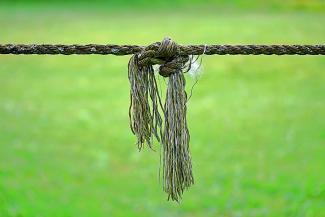Heidelberg School of Education
Voßstraße 2
Gebäude 4330
69115 Heidelberg
Deutschland
A WORKSHOP FOR LECTURERS, EDUCATORS, AND LOCAL STAKEHOLDERS

In this workshop we will explore transatlantic and (trans-)disciplinary approaches to difficult conversations in superdiverse lecture halls, classrooms, and communities. We warmly invite lecturers, educators, and local stakeholders in Heidelberg who
- seek to strengthen communication and relationship-building as integral components of future teacher professionalism,
- work within conflicting or polarised contexts, and
- (seek to) navigate heated dialogues with tools for transformative learning.
The workshop will feature short inputs from German and U. S. perspectives, followed by practice reflection, collegial exchange, and collaborative planning for next steps.
GUIDING QUESTIONS
The workshop will address, among others, the following questions:
- When do conversations become “difficult,” and for whom?
- How are difficult conversations approached and understood in pre-service teacher education in Heidelberg and New York, especially from the subject specific, didactic and educational perspectives?
- Which theoretical and pedagogical approaches (do not) work in German and U. S. contexts in racism-critical education?
- How do silences and power dynamics unfold in teaching and learning, and what critical aspects require attention?
- How can we create spaces in (pre-service) teacher education where difference, discomfort, and dialogue become productive?
BACKGROUND AND FOCUS
The capacity to engage in difficult conversations – understood as dialogical encounters around ideologically, socio-culturally, and emotionally charged topics –requires a wide range of knowledge, skills, and competences grounded in critical, context-sensitive, and communicative approaches. To be a lecturer, educator, or teacher is to communicate continuously and to work in and through relationships. Managing conflicts, facilitating group work, and addressing polarisation and complex topics – often shaped by algorithmic environments – are all aspects of professional practice that depend on critical thinking and reflection, dialogic openness, democratic education, social justice and human rights, trust and recognition, diversity awareness, intersectionality, and not least, inter- and transdisciplinary collaboration.
While the overarching topic of difficult conversations in teacher education encompasses a wide range of painful issues – such as migration, racism, armed conflict, social inequality, climate change, gender and sexuality education, and religious difference – this workshop will specifically focus on racism-critical education.
CONTRIBUTORS AND COLLABORATION
We are delighted to welcome distinguished scholars Darja Brotzmann from the University of Education Heidelberg, Dr. Sarah Creider and Dr. Sandra Schmidt from Teachers College, Columbia University (U. S.), as contributors to this workshop.
The event continues inspiring exchanges within the working fields at the Heidelberg School of Education, namely Critical Media Literacy, Verschränkungsmodul and Education for Democracy. This workshop is also part of an ongoing collaboration between Teachers College, Columbia University, and Heidelberg University, marked by a renewed Memorandum of Understanding aimed at deepening dialogue in teacher education and educational research.
The travel of our guest speakers from Teachers College was made possible by the Expanding Internationality Fund of Heidelberg University.
REGISTRATION
Lecturers, educators, and local stakeholders who would like to take part in the workshop are kindly asked to confirm their participation here by 31st October.
Dr. Lina Pranaityte, Johanna Ruge, Dr. Anuschka Holste-Massoth and Dr. Daniel Vetter are looking forward to welcoming you!



